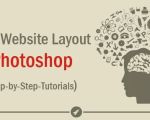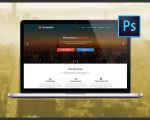1. Why Ask “Is It Hard to Design a Website”
Plenty of people wonder, “is it hard to design a website?” because they imagine complex code and endless layouts. In reality, designing a website ranges from simple drag-and-drop builders to advanced responsive frameworks. It’s important to know your goals—do you want a personal blog, a portfolio, or an e-commerce store? That context shapes the difficulty. Understanding whether it’s hard involves breaking down the process: planning content, choosing tools, learning basics of HTML/CSS, ensuring mobile responsiveness, optimizing for SEO, and testing cross-browser compatibility. For many beginners, the biggest hurdle isn't the code—it’s the overwhelming amount of choices.
2. Key Challenges in Web Design
So what makes people ask, “is it hard to design a website?” Here are the core challenges:
- Visual design and layout: choosing typography, color palettes, grid systems.
- Responsive behavior: ensuring designs adapt to mobile, tablet, and desktop.
- Interactivity and UX: adding forms, animations, navigation clarity.
- SEO fundamentals: structuring content, optimizing images, metadata.
- Performance and speed: compressing assets, minimizing resource loads.
- Accessibility: designing for users with disabilities (alt text, ARIA roles).
Each of these layers adds complexity and often leads beginners to wonder whether web design is overly daunting.
3. Real Case Example from Beginners
Tina, a freelance writer with zero coding experience, asked “is it hard to design a website” after trying Wix and WordPress. She spent nights experimenting, initially frustrated by misaligned elements and wonky mobile views. Then she took a weekend on a free HTML/CSS tutorial—her personal portfolio came together in under two days, with clean structure and responsive images. Her journey revealed that while the learning curve existed, breaking the task into manageable steps turned what seemed hard into an achievable weekend project.
4. Effective Learning Strategies
Asking “is it hard to design a website” should prompt a strategy shift. Here’s how to make it easier:
- Start with templates: modify existing layouts to learn structure.
- Practice small components: build cards, buttons, headers separately.
- Use CSS frameworks: like Bootstrap or Tailwind to reduce layout complexity.
- Learn by imitating: pick a site you like and recreate sections.
- Test frequently: check mobile and desktop regularly to catch issues early.
- Join communities: In forums or Discord channels for quick feedback.
This step-by-step mindset makes web design feel less intimidating and more result-oriented.
5. Tools and Resources to Ease The Process
Tina found building her site much easier after she discovered tools like Figma for mockups, codepen for interactive experiments, and responsive Chrome dev tools to test layouts. She also used website builders like Webflow for visual design without diving into code. These methods answered “is it hard to design a website” by showing that support tools drastically flatten complexity.
6. Professional Perspectives and Pitfalls
Professional designers say that for complex sites—dynamic user dashboards, high-traffic e-commerce stores—the challenge grows significantly. Performance tuning, security, CMS integration, and custom features require deeper skills. Many freelance developers report early roadblocks with slow load times, cross-browser quirks, or responsive misalignments. However, experienced designers note that foundational knowledge, diligence, and iterative improvement make even complex sites manageable. Their advice often reflects on how the perceived difficulty fades after the first few projects.
7. How SitePoint 24 Helps
When beginners ask “is it hard to design a website,” they often need curated guidance. SitePoint 24 offers comprehensive courses, from “HTML & CSS for Absolute Beginners” to advanced responsive layouts. The site provides practice projects, code snippets, and layout inspiration tailored to real-world goals. They also publish interviews with developers who share how they overcame early challenges. If you're ready to dive deeper or want structured help, SitePoint 24 is the ideal partner to make designing websites feel accessible and even enjoyable.








